
Organic Farming vs Hydroponics
“Go organic” has become the battle-cry of thousands of Americans who assume that food items labeled “organic” is automatically a better, healthier product. Is this really true?
Both organic farming and hydroponic farming embrace a desire to protect our planet’s fragile environment. Both methods steer clear of harmful chemical fertilizers and pesticides. Both seek to end irresponsible water pollution and soil contamination. So where do the two “do no harm” philosophies differ?
The term “organic” is a versatile term that is widely varied. That little “organic” label on produce is the result of a tangled mass of bureaucratic definitions, which seem to vary from one state to the next. In fact, a product that falls far below one state’s organic standards can receive the “gold standard” label of Certified Organic in another. There seems to be little consistency from one state to the next as to what truly constitutes organic produce.
The basic goals of organic growers include controlling pests naturally and without the toxic pesticides that also kill birds and bees; replenishing our nutrient-depleted soil by composting and other natural methods; and using artificial nutrients in moderation, primarily through the humus that comes from compost. Certainly, this is a step up from the traditional agri-industry, which is notorious for its wanton use of pesticides and chemical fertilizers. But does that make organic your best choice?
In order to be considered organic, plants cannot be nourished with mineral salts or any other refined substances, even though these are of a higher purity than most organic fertilizers. Only unrefined minerals can be applied to organic crops. The problem is that a number of these unrefined minerals, although natural, are toxic in nature. For example, mined phosphate contains excessive amounts of fluoride and radioactive radium, both of which can be extremely harmful to humans. Chloride is another natural mineral permitted in organic agriculture, even though it is incredibly bad for both plants and soil.
Organic farming also allows the use of manure as a natural fertilizer. This has caused a recurring health problem due to E-coli and salmonella outbreaks. We all remember the recent outbreak of serious gastro-intestinal illnesses traced to a California lettuce grower whose produce had been contaminated by E-coli due to the use of manure. And the Western Fertilizer Handbook points to a shocking number of similar illnesses traced back to manure used on organically-grown crops.
Hydroponic – what it is and what it is not
Hydroponic growers have completely eliminated the need for soil and its micro-organisms. This has resulted in better crop quality, higher growth rates and much healthier produce, all without soil erosion or water supply contamination. The fertilizers used in hydroponics are much more pure than those utilized in organic growing, and they also leave no residue in cultivated produce. The result is that more people can be fed, less precious natural resources are used, and the produce is much healthier and flavorful.
Hydroponic crops are generally grown in a far more sterile environment than organic crops. Precise controls are utilized to ensure optimum growth, extended growing seasons, and maximum nutrition. This sterile environment also dramatically reduces the need for pesticides. When a form of pest control is needed, only natural, non-toxic materials are ever used.
Hydroponic growers use highly refined minerals in their nutrient solutions, simply because mined minerals dissolve poorly and, as mentioned earlier, can be extremely toxic to humans and even harmful to plant life. In fact, when hydroponic crops are analyzed for any trace of chemicals listed on the EPA’s priority pollutant list, usually none are found.
The list of benefits of hydroponically-grown produce continues when we realize that it has enhanced nutrition compared to organically-grown produce. Compared to their soil-bound counterparts, fruits, vegetables and herbs grown hydroponically typically offer a significantly increased amount of the vitamins and minerals that we all need to maintain good health. It has been said that hydroponic produce also has superior flavor and appearance. Many people agree that produce grown hydroponically stays fresh longer. This is important for consumers because it saves them money; they can use the produce they have instead of tossing it because it spoiled too quickly. Finally, food grown hydroponically tends to be less expensive in the grocery store than its organic counterpart. With its environmental benefits, better nutrition and decreased cost to the consumer, it’s no wonder hydroponically grown produce is gaining popularity.

Hydroponic Nutrients

EC vs TDS

Organic Does Not Mean “No Pesticides”

How Plants Uptake Nutrients

What is Aquaponics
Trackbacks and pingbacks
No trackback or pingback available for this article.
0 comments
Leave a reply Delete Message
Articles
Featured
-
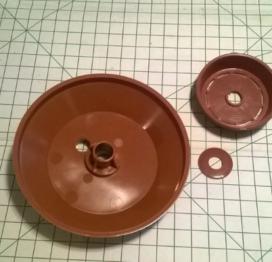 Drain Dish & Diffuser Dish Set 10 PackRegular Price $124.99
Drain Dish & Diffuser Dish Set 10 PackRegular Price $124.99 -
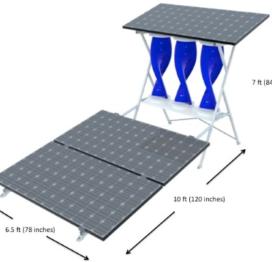 Tri-Helix Solar WindmillRegular Price $4,399.00
Tri-Helix Solar WindmillRegular Price $4,399.00 -
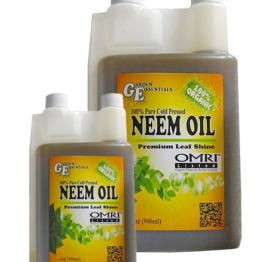 Cold Pressed Neem OilRegular Price $29.92 – $38.71
Cold Pressed Neem OilRegular Price $29.92 – $38.71 -
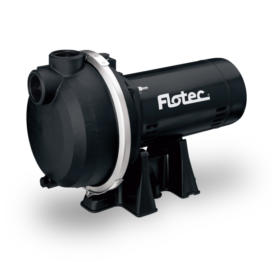 Thermoplastic Irrigation Pump 1 HPRegular Price $469.99
Thermoplastic Irrigation Pump 1 HPRegular Price $469.99 -
 Drain Dish & Diffuser Dish SetRegular Price $16.99
Drain Dish & Diffuser Dish SetRegular Price $16.99 -
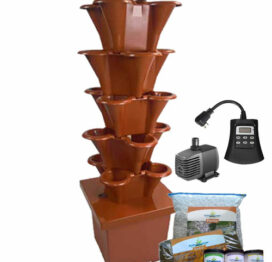 EzGro Patio GardenRegular Price $389.99 – $399.99
EzGro Patio GardenRegular Price $389.99 – $399.99 -
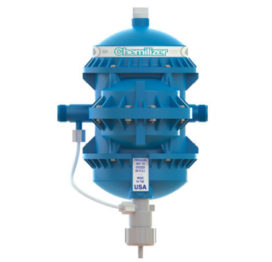 Chemilizer InjectorRegular Price $349.99
Chemilizer InjectorRegular Price $349.99 -
 5000 Watt 48 Volt Power InverterRegular Price $899.00
5000 Watt 48 Volt Power InverterRegular Price $899.00 -
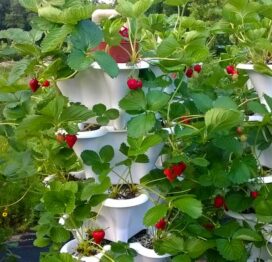 Five Tower Strawberry GardenRegular Price $2,799.00
Five Tower Strawberry GardenRegular Price $2,799.00 -
 EzGro Precision Micro TrimmerRegular Price $11.99
EzGro Precision Micro TrimmerRegular Price $11.99









Great article...great information! Thank you for doing your part to educate the public.
We recently constructed our first hydroponics greenhouse..none of us had ever worked with hydroponics but are very pleased with the ease of the growing process. We just started selling our hydroponics lettuce...our customers love the cleaness and freshness of the lettuce. We currently have four large contracts with some of the largest restaurants in Asheville, NC to include the Biltmore Estates...we are planning at least two more units to grow tomatoes, and cucumbers. We are truely amazed ... and loving every moment of it. Thanks..Gene
Greetings,
I am a student at UNC Asheville within the Mechatronics program and will be entering my senior year this Fall. I have been collaborating with other students on ideas for our Senior Design Project. An automated growing apparatus is at the top of our list. Do you see the possibility of forming a symbiotic relationship with 3-5 UNC Asheville students?
wow! that is good . i like it .lol
Assuming objective of organic culture is free from pollutants, such as chemical fertilizers and pest protectant, as much as possible, for the crops human has to grow and produce, use manure and not to use any chemical products.
The land to grow crops is at open environment, therefore, it could have chances of having some of pollutant such as smoke from various industrial plant, dusts via air and river soil born pathogens and soil itself has toxic elements and too much or far less elements of macro-mineral .
Therefore, production of crops at a higher yield and good quality can be limited.
While hydroponic culture has man made environments of computerized control of climate, fertigation and water quality control by ultraviolet rays and or hot water pasteurization system, therefore, crops can be grown at a very healthy condition that leads to minimize occurrence of diseases, minimize of insect entry that leads to higher yield per Ha with good quality. of course, agro-chemical usage can be far less.
Animals being grown at a better environment of disease and pest free, nutritive and
stresses free can be comparative to the one of opposite.
Why the grower in hydroponic wants to have certificate of organic farming is hard to understand why not authority issue certificate of organic for the crops grown in hydroponic for the product produced at a better condition for clean food.
I'm an urban hydroponic farmer and while I agree on it being relatively clean and environmentally friendly, stating that hydroponics produces more nutritious and better tasting crops is simply false.
Actually this is not false it has been proven. Research has been done on the nutrition of hydroponics produce.
Research in Holland gives an indication of the influence of hydroponic nutrient solution strength on aspects of tomato quality. A rise in root environment solution strength from EC 2.6 to 3.5 mS/cm gave the following increases:
Shelf life in days 17.5 to 19.2
EC in fruit sap in mS/cm 5.8 to 6.2
Acids in fruit sap, mmol/L 75.0 to 84.0
Brix of fruit sap % (approx. sugars) 4.8 to 5.0
(Source: “Overview of nutrition in hydroponics”, by Dr Cees Sonneveld, Australian Hydroponics Conference, Melbourne, 1993.)
Another nutritional study published recently claimed that hydroponics produce was higher in certain vitamins than field grown produce. The study was carried out in San Jose, California, by Plant Research Technologies Incorporated. Several varieties of tomatoes and sweet peppers were tested for vitamins A, B1 (thiamin), B2 (riboflavin), B3 (niacin), B6 (pyridoxine), vitamin C and vitamin E. The study showed a dramatic increase in vitamins and minerals in hydroponics, in some cases up to 50% higher vitamin content.
reply to Mr. Daniel
I am an expert organic farmer, for more than 33 years, and my specialty is berries and tomato. This year was the first hydroponics years I start, begining with strawberry first, and raspberry next, and believe me, even my organic production this year was of no match to the hydroponics production taste and Brix levels.
The fruits were harder, longer shelf life, and at least 1.5 times tastier than the the organic production. During hydroponics, you daily give the plant the components needed to its growth, providing bigger plants, higher quality fruit and longer production cycle. You can even control the temperature of the substrate to provide uninterrupted production cycle.
This year, I will begin with vertical stacking strawberry system, a wall system facing south for higher number of plants per acre and extending into the winter.
That is my personal experience based on being the GM for the largest organic cooperative in my country for 3 years.
Thank you for your time